- News
- Reviews
- Bikes
- Components
- Bar tape & grips
- Bottom brackets
- Brake & gear cables
- Brake & STI levers
- Brake pads & spares
- Brakes
- Cassettes & freewheels
- Chains
- Chainsets & chainrings
- Derailleurs - front
- Derailleurs - rear
- Forks
- Gear levers & shifters
- Groupsets
- Handlebars & extensions
- Headsets
- Hubs
- Inner tubes
- Pedals
- Quick releases & skewers
- Saddles
- Seatposts
- Stems
- Wheels
- Tyres
- Tubeless valves
- Accessories
- Accessories - misc
- Computer mounts
- Bags
- Bar ends
- Bike bags & cases
- Bottle cages
- Bottles
- Cameras
- Car racks
- Child seats
- Computers
- Glasses
- GPS units
- Helmets
- Lights - front
- Lights - rear
- Lights - sets
- Locks
- Mirrors
- Mudguards
- Racks
- Pumps & CO2 inflators
- Puncture kits
- Reflectives
- Smart watches
- Stands and racks
- Trailers
- Clothing
- Health, fitness and nutrition
- Tools and workshop
- Miscellaneous
- Buyers Guides
- Features
- Forum
- Recommends
- Podcast
TECH NEWS
SRAM RED eTap AXS – 12-speed wireless groupset with radical new approach to gearing launched + In depth First Look Video Q&A with SRAM engineers
SRAM has completely and radically redesigned its top-tier Red eTap groupset, making the leap to 12-speed but more than that, introducing a completely new approach to gearing that provides a wider range and smaller jumps between sprockets and adding for the first time a 1x option.
And in case you’re wondering what happened to an anticipated Force eTap announcement, well it’s coming in April. That’s all we know for now, but yes a cheaper eTap is coming to market this year.
SRAM Red eTap AXS at a glance:
- Is now 12-speed
- Disc or rim brakes
- 2x and 1x drivetrain options
- Broader gear range - higher gears are higher and lower gears lower than current set ups
- Updated motors and sensors for faster shifting
- AXS allows mix and match customisation of road and mtb components
- Smartphone app provides monitoring and personalisation
- Choice of three cassettes starting with a 10-tooth sprocket
- Three dual ring chainsets with reduced chainring sizes
- Fluid damper in the single rear mech used for 1x and 2x configurations
- All-new chainset with an integrated power meter
- Flat Top chain is narrower but new design retains strength
It was in the cactus-studded desert of Tucson in Arizona that SRAM’s all-new flagship groupset was unveiled to the world’s journalists, some four years after SRAM first launched its groundbreaking eTap wireless electronic groupset and helped it to close the technology gap to Shimano’s Di2 and Campagnolo’s EPS electronic drivetrains.
In some ways the new Red eTap AXS groupset is an evolution, building on everything that was so well received in the first generation eTap, but also in many ways it’s a significant re-imagining of the groupset and one that has been driven, according to SRAM, by examining how the sport is changing with new categories and styles of riding with endurance bikes and gravel bikes pushing current groupsets to their limits.
- SRAM launches electronic wireless Eagle AXS groupset and Reverb dropper
What it has developed is a highly configurable groupset that can be personalised via a new app to meet the many different requirements, from WorldTour professional bike racers to bearded adventure cyclists. As before, it’s available with disc or rim brakes and the 2x setup is now joined by a 1x option for the first time, appeasing the many gravel, adventure and cyclo-cross cyclists wanting a wireless choice.
SRAM has proven eTap to be reliable and intuitive to use and this new groupset is still eTap at its core, but it has added a whole bunch of extra functionality. And Bluetooth, because all new things need Bluetooth! But more on that later…
Building on solid foundations
There have been two strands of development with new Red eTap AXS, the electronic improvements as outlined in the AXS section further down this article, and mechanical improvements which reveal a completely re-engineered groupset aimed at providing a wider range and closer gear ratios.
There is some carryover from the original eTap: the brake levers and eTap shifting layout, derailleurs with removable batteries, and the hydraulic disc brakes are virtually the same, but apart from that everything else is new.
There are new chips and motors that are faster and more accurate. Now, pressing a shift button moves the derailleur faster and more accurately over the cassette, and the smaller gap between the chainrings improves front shifting quality. Not a complaint as such, but eTap never felt as snappy as Shimano’s Di2 when shifting gear. This improvement should narrow the gap. It’s a lot quieter as well, that has been a big focus for the new groupset.
12-speed then…
Yes, eTap makes the leap to 12-speed. That much we knew from the spy-shots, and given the path of product development over the last few years, it’s little surprise that SRAM has gone 12-speed. We expect Shimano’s latest Dura-Ace to do the same when it’s released, whenever that is – probably later this year.
But whereas Campagnolo used, rather disappointingly in my point of view, the extra sprocket to simply tighten up the cassette (you can watch my video review here), SRAM has gone another step and redesigned the groupset. The 12th sprocket is not at all key to the revamp, but it made sense to go this route and helps to provide the range and smooth steps that SRAM wanted to deliver.
What’s it like to ride?
Fortunately, I can answer that question as I got to ride it for two days in the Tucson deserts, first on a Tarmac SL6 road bike and secondly on a Scott Addict gravel bike, but I’ll save all the juicy first ride impressions article and we'll put a link in here as soon as that goes live.
But to give you a teaser, it works really well. Shifting quality is excellent with noticeably faster shifts, and it's also very quiet with the new derailleur and chain. On some very rolling terrain with lots of climbing the groupset provided enough range to tackle the steepest climbs and the fastest descents. I really noticed the smooth shifting in the sweet-spot of the cassette as well, with no irksome jumps when I was trying to maintain a smooth cadence.
It simply works is my takeaway, there's nothing unusual about the unusual ratios, I noticed no drawbacks or efficiency concerns.
That's enough for now, there's a lot of tech to get you so let's focus on that for now.
More range and faster shifting
SRAM has focused on providing a wider range of gears and smaller jumps, with more flexibility to build a groupset to meet a widening band of requirements.
Those three cassette options are:
- 10-26
- 10-28
- 10-33
And the three chainset options are:
- 50/37
- 48/35
- 46/33
“Road riders are going beyond where we’ve ever gone before. We’re going further and faster. And when the road stops, we keep going. One thing hasn’t changed: We want to push those boundaries without any distractions,” says SRAM.
X-Range Gearing is a complete overhaul of the gear ratios. Simply put, it aims to provide a wider range of gears than any current conventional groupset, a recognition of how road bikes have developed in recent years. SRAM says it aims to provide ideal ratios for modern riding standards which are more capable than ever before, so you always have the right gear to offer a better riding experience.
To achieve this it has developed three new cassettes built around a 10-tooth sprocket enabled by its existing XDR driver (1.8mm wider than XD) which the new cassette is only compatible with. Most wheel brands will offer this option with the obvious exception of Shimano, but does anyone pair Shimano wheels with a SRAM drivetrain? Probably not.
Moving to a 10-tooth sprocket has allowed SRAM to do something quite radical, and that is to move to smaller chainring sizes. It has also narrowed the step from the small to big ring from the usual 16-tooth jump to 13-tooth, to enable better shifting performance at the front.
In very simple terms, SRAM has taken range from the chainset and added it to the cassette. The idea is to shift the focus onto rear shifting, so doing less front shifting and spending more time in one front chainring and more time in the sweet-spot of the cassette where the one tooth jumps are.
According to SRAM, it’s all about reducing the decisions a rider has to make, whether a pro racer or a sportive cyclist. So it’s not quite killing off the front mech, but it is reducing its importance.
The new cassettes provide consistent ratio steps with a greater number of 1 tooth gaps compared to the five most common current cassette options. They also provide more range, from 260 to 330%, compared to 227 to 309% with regular cassette options. So you lose nothing at the high or low end and have smoother steps across the cassette.
Compared to Shimano’s increasingly common 11-30t cassette which has 278% range with 4 one tooth jumps, SRAM’s new 10-28 has a 280% range and 7 one tooth gaps.
More range and fewer gaps, what’s not to like?
If you're wondering which combination is right for you if making the switch from a conventional groupset, SRAM has produced this handy chart.
One rear mech with a fluid damper
There’s just a single rear derailleur used for every configuration of groupset, and it features the new Orbit Chain Management. This is SRAM’s name for the simple fluid damper inside the mechanism that provides increased cage tension when riding over rough roads, cobbles or gravel.
It’s lighter and more compact than the clutch mechanism in a mountain bike rear mech, and while you can’t disengage it completely, it is speed sensitive, thus allowing easy wheel removal and adequate tension over the bumpiest surfaces. The damper is completely sealed and non-adjustable and never needs servicing.
The new rear mech also has larger pulley wheels and ceramic bearings. It’s compatible with existing eTap batteries.
Updated front mech
There’s also just one front mech, and it has been slightly revised to provide increased tyre clearance for endurance bikes that are pushing ever wider. It has a max rear tyre width compatibility of 42mm measured width.
There was some speculation that SRAM might develop a smaller battery to increase clearance on bikes with wide tyres, but the company reckons most people running tyres at and above 40mm will likely opt for a 1x setup. I’d be inclined to agree but I’m sure there’ll be people who want a 2x setup with 50mm tyres?
What is AXS?
AXS (pronounced access) is designed let you control your bike, to personalise the bike and monitor your bike. It’s the ecosystem that SRAM has developed under which all AXS labelled components can be connected to each other and personalised via the new smartphone app via Bluetooth. It’s a level of integration we’ve not seen before and made possible due to the electronics.
The most exciting aspect of AXS is the fact you can now mix and match components from one category to another. We’ve been seeing an increasing level of cross-pollination of mountain bike parts into the road bike world in recent years, and AXS now makes this really easy. The 3T Exploro above is a real good example of this new capability.
So, for example, you could take the new Eagle AXS mountain bike rear mech and colossal 10-50t cassette and combine it with a Red eTap AXS single ring, drop bar shifters for adventuring and off-roading. You could even chuck in Reverb AXS dropper post too and set up the redundant left-hand shifter to activate it.
This new app lets you do many things, from connecting new AXS components the rest of your groupset, monitor the battery level and in future updates check chain wear and how many shifts each mech has conducted. It also lets you reconfigure the shift buttons and reverse the default layout of right/up and left/down, and swap them if you really want.
SRAM is now offering compensation and sequential modes. Sequential will shift the front mech for you. You can still override it, and buttons inside the shift paddle let you turn it off and on. You can never run small/small. Compensation offers more control, when you change at the front is shifts at the back and you can select the number of compensation gears. The way SRAM has jiggled around with chainring and cassette sizes does also mean there’s less compensation shifting requirement anyway.
What the app isn’t though is compulsory. You can install a new Red eTap AXS groupset without needing to download the app onto your phone. If you do utilise the app, you don’t need to make an account or an internet connection. Should you choose to make an account data from the app regarding your groupset can be stored in the cloud, so if you lost your phone you won’t lose your data, and you can store as many bikes as you want in the app as well. For security reasons the app does not record ride data, only operating and actuation times.
SRAM did divulge it could potentially look at expanding the capabilities of the app in the future but for now, it’s limited. Adding ride data could provide the potential to analysing gear changes and offer gearing setup improvements tailored to your specific requirements.
To allay any concerns over sabotage, when you connect any device to the app you have to physically press and hold the pairing button on the component to authenticate the app with the component. The only time you do that is at installation or if you make any changes. It’s one phone per rear derailleur. It’s completely impossible to shift gears over Bluetooth via the app, even if you managed to take control of a friends bike during a cafe stop when they head to the toilet.
TyreWiz will eventually be added to the app.
What about efficiency?
About now the comments section will be overrun with people screaming about the loss in efficiency of the 10t sprocket compared to a conventional 11t. SRAM says it tested the efficiency in its own lab and found the difference to be so small it’s not ever worth worry about. It argues that any loss is offset by other benefits the groupset offers.
Still, I’d love to see an independent efficiency test comparing the three main groupsets from SRAM, Shimano and Campagnolo. If anyone is up for that do let us know please.
Flattop chain
The leap to a 12-speed cassette requires a narrower chain, and so to ensure the chain provides the adequate strength SRAM has added back material to the top half of the links, hence its odd look. It’s called Flattop for obvious reasons.
It’s a directional chain and is claimed to provide greater shifting accuracy and also less running noise since there’s more clearance between the chain and sprockets. It’s made with Hard Chrome plated inner links and rollers to prolong life and uses hollow pins. It requires a new Flattop PowerLock.
Its development required brand new machines at the facility in Portugal where they are made. And in case you’re wondering, it’s not compatible with SRAM’s Eagle 12-speed groupset.
Beyond road
As I've already mentioned one of the exciting developments to come out of the SRAM launch is the brand new Eagle AXS and Reverb AXS dropper post mountain bike components which also get the same wireless and AXS connected treatment as the Red eTap components.
It means a level of customisation we’ve not seen before. You could pair an Eagle rear mech with the 10-50t cassette and a Reverb dropper post with a Red eTap chainset and drop bar shifters, the sort of setup that would not look out of place on a gravel/adventure/allroad bike.
Do you want a power meter with it?
Shimano did it with its most recent Dura-Ace crankset, and now SRAM is also offering integrated power with the Quarq DZero power meter built into the chainring and is available in both 2x and 1x versions.
When I say the power meter is built into the chainring, I mean it really is built in. You can’t separate the two parts. And yes, that means if/when the chainring wears out, you need to replace the ring and power meter.
SRAM says the benefits outweigh the negatives. It was able to build a lighter and stiffer chainset. The chainrings are claimed to have improved durability and SRAM reckons you’re looking at five years or more of usage, obviously depending on how much riding you do and the conditions you’re riding in. When’s the last time you replaced your big ring?
The power meter offers a claimed +/-1.5% accuracy and dual-sided power measuring and features ANT+ and Bluetooth wireless communication protocols.
The 1x crankset offers the same fully integrated power meter on 48 and 50t versions (a 52t is in the works) and the smaller 36-46t versions used a spider-based power meter. Since you might swap rings more often on a 1x setup, you don’t need to recalibrate the power meter every time.
There is a non-power option and also a triathlon version. It uses the SRAM DUB bottom bracket standard which caters for all common BBs on the market with the exception of PF90, with the same 28.9mm spindle used across the range.
XDR driver only
The new cassette can only be used with SRAM’s existing XDR. XD is used on Eagle but XDR is 1.85mm wider, because of spoke clearance with the big sprocket (the 50t sits outboard of the freehub). It’s essential tallowng the use of the smaller 10t sprockets. Pretty much hub supplier supports the standard - Shimano being the big exception.
Trainer compatibility
For indoor trainers, you’ll need to change the freehub on your trainer. Some trainers have replaceable freehubs so it’ll be an easy switch, but it might cause issues with other trainers. We expect some announcements from the big trainer companies in the next few days and we’ll do a separate article on indoor trainer compatibility.
Disc brakes
There has been no change to the disc brakes. The disc rotor has received a slight update with a new appearance to apparently make it look a bit more road-specific. It’s offered in 140 and 160mm sizes in 6-bolt or Centrelock mounting interfaces.
Go on then, how much is it?
- 2x Hydraulic Road Disc Brake w/ Power - £3,794
- 2x Hydraulic Road Disc Brake - £3,349
- 2x Rim Brake w/ Power - £3,604
- 2x Rim Brake - £3,159
- 1x Hydraulic Road Disc Brake w/ Power - £3,294
- 1x Hydraulic Road Disc Brake - £2,849
- 1x Hydraulic Road Disc Brake Aero w/Power - £3,362
- 1x Hydraulic Road Disc Brake Aero - £2,917
- 1x Rim Brake Aero w/Power - £3,004
- 1x Rim Brake Aero - £2,559
And how much does it weigh?
Is new Red eTap backwards compatible?
No. I’m afraid there’s no backwards compatibility of new Red eTap AXS with first generation Red eTap. Neither will there be a firmware update for old eTap. So if you want to upgrade, it’s a complete new groupset.
When can I get my hands on it?
It’s available now. Yup, no waiting many months following all the launch fanfare before you can get your grubby mitts on it!
What about Force eTap?
That’s coming in April 2019. WE don’t have any more details other than that at the moment, and therefore we don’t know how much of the technology of this new Red eTap AXS groupset will be carried down to the Force level, so we’ll have to wait and see.
David worked on the road.cc tech team from 2012-2020. Previously he was editor of Bikemagic.com and before that staff writer at RCUK. He's a seasoned cyclist of all disciplines, from road to mountain biking, touring to cyclo-cross, he only wishes he had time to ride them all. He's mildly competitive, though he'll never admit it, and is a frequent road racer but is too lazy to do really well. He currently resides in the Cotswolds, and you can now find him over on his own YouTube channel David Arthur - Just Ride Bikes.
Latest Comments
- SecretSam 5 sec ago
The strength of character required to recover is quite astonishing. That he can ride a bike at all shows incredible determination.
- hawkinspeter 16 min 41 sec ago
I'm pretty sure that's an untitled goose
- Oldfatgit 59 min 49 sec ago
Are these actually 'hi-viz' - or just brights?...
- Bungle_52 1 hour 56 sec ago
That one was completely different though, it was a driver not a car as in the other 3. So 1 in 4 of the stories manage to follow reporting guidelines.
- Rendel Harris 2 hours 53 min ago
Absolutely they could have. Tarmac is a petroleum-based product and its surface can be very oily when it's newly laid. This is particularly the...
- ROOTminus1 8 hours 55 min ago
I'm glad the article went into more detail and cleared things up, the headline had me worried that some autonomous building had run rampant and...
- mark1a 9 hours 14 min ago
Still here, just showing a few signs of wear and tear. Hopefully still serviceable for some years to come.
- Rendel Harris 9 hours 58 min ago
How can you know that you are "equally fearful" as "any female cyclist"? There is no possible way of quantifying such emotions and female cyclists...
- chrisonabike 10 hours 30 min ago
I think it would be fairer to blame the moon - as in "my client is a loony".
- Bungle_52 10 hours 53 min ago
Nice idea but Gloucestershire Constabulary are not interested as exemplified by this prvious NMOTD. Not only was there NFA for the close pass in...

















































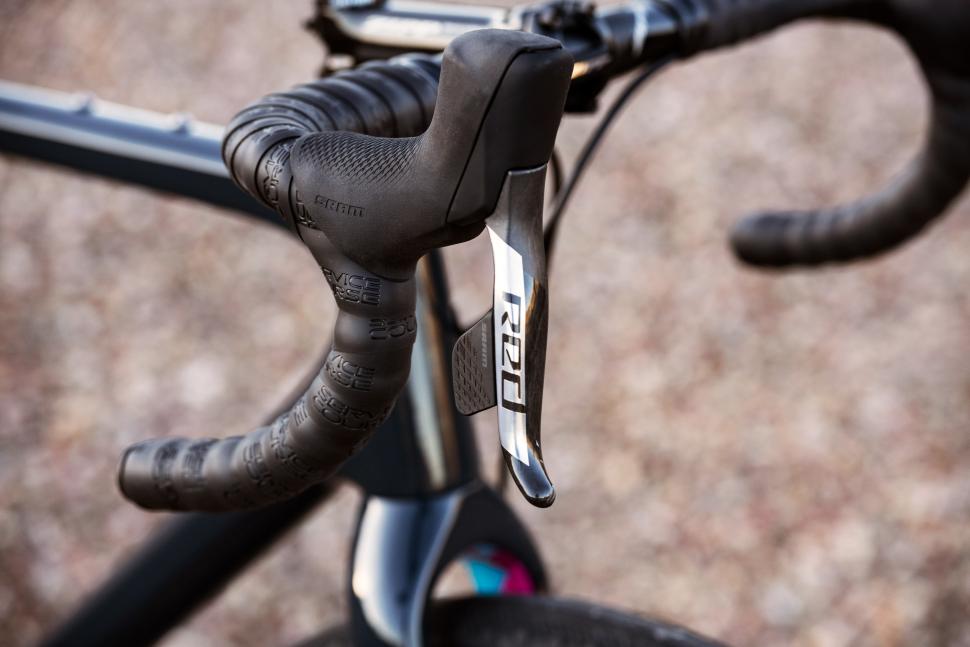
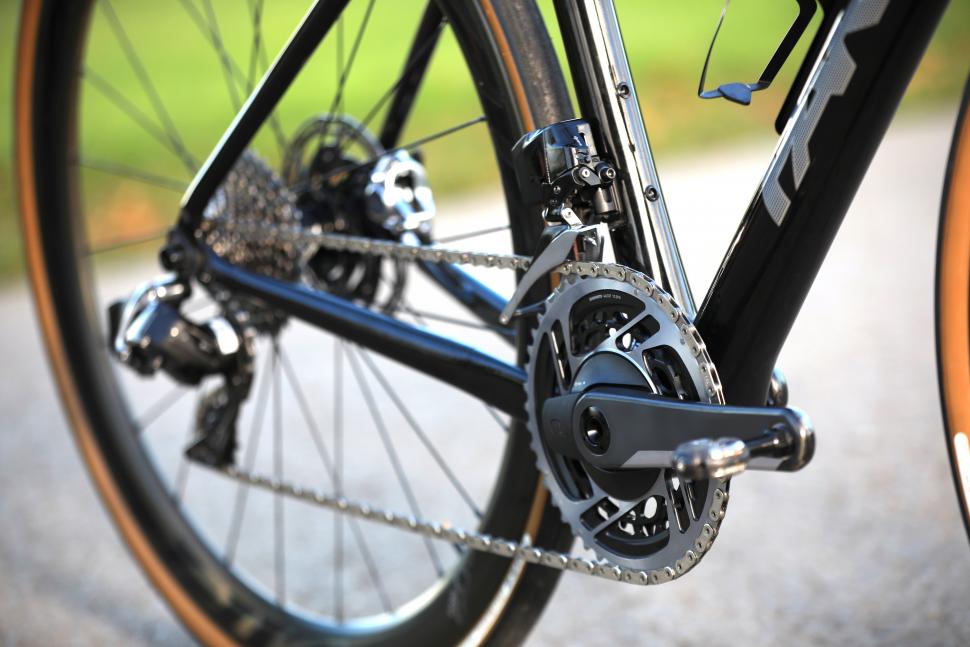
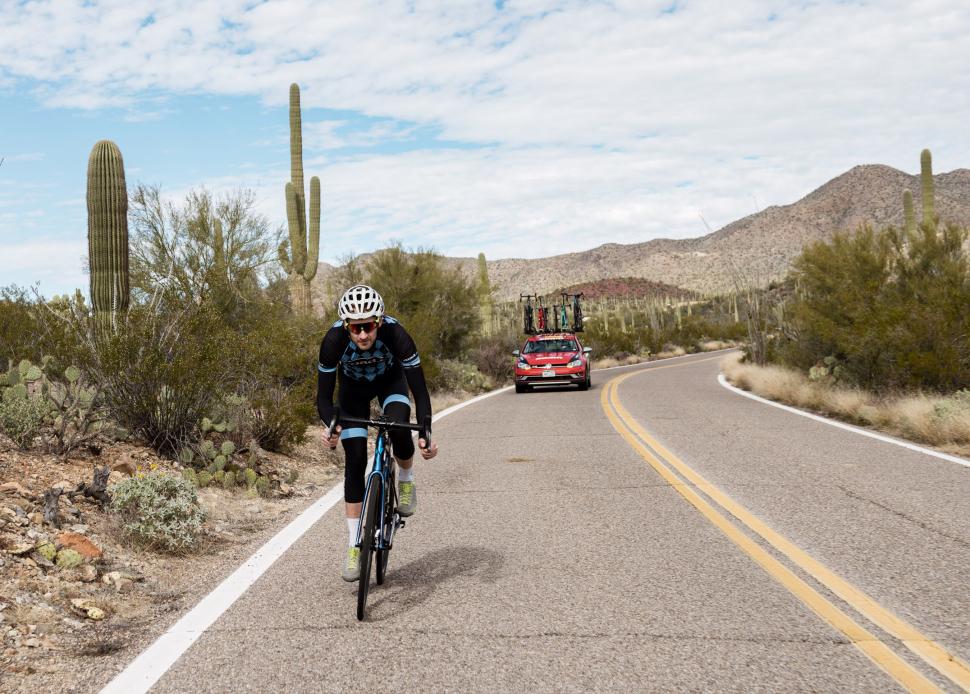
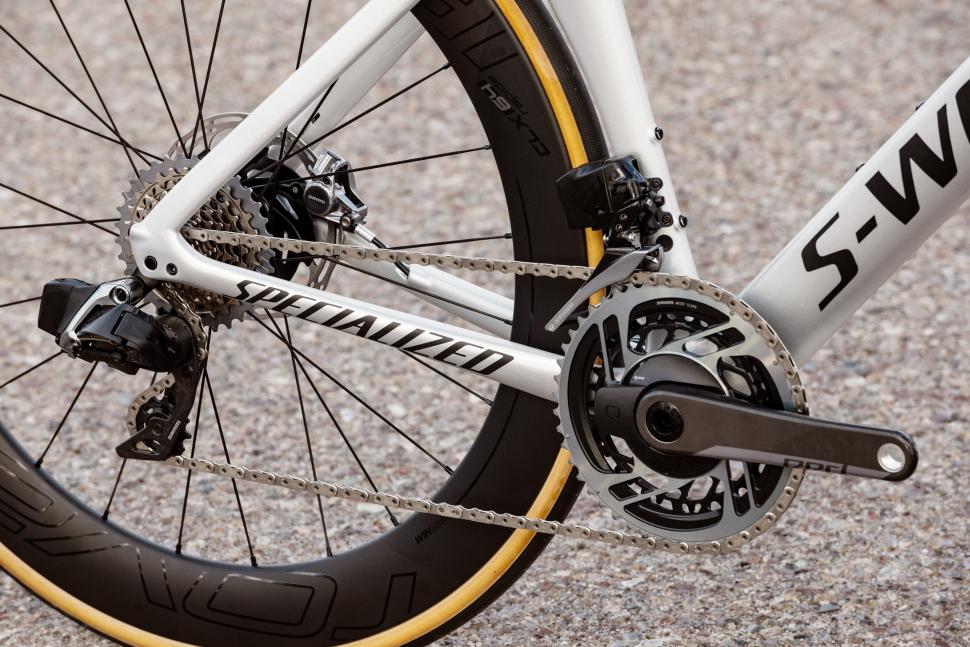

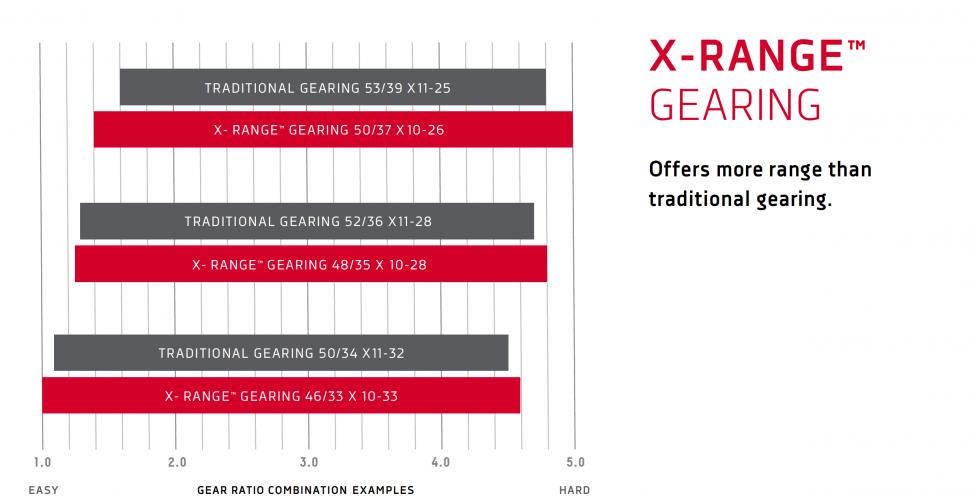
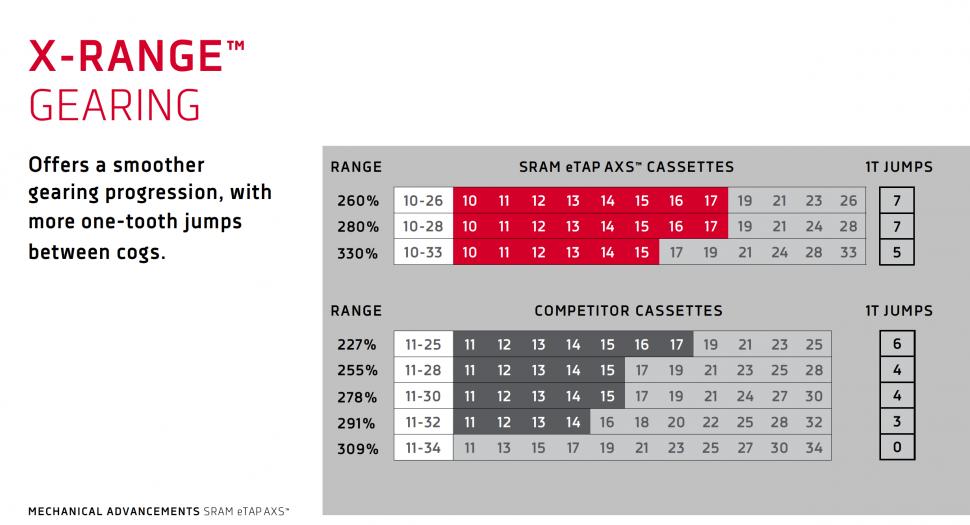

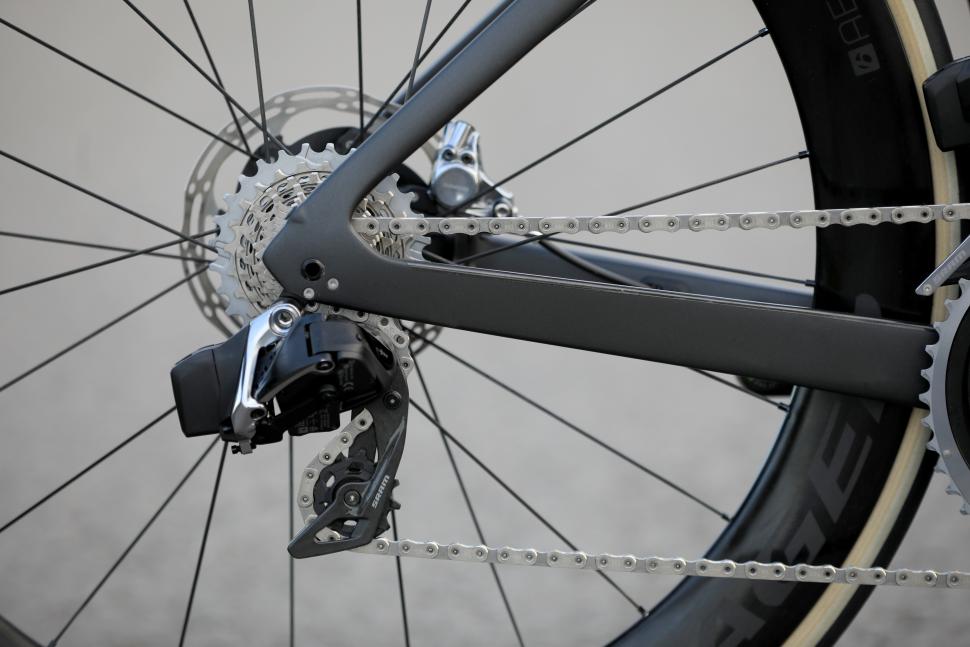
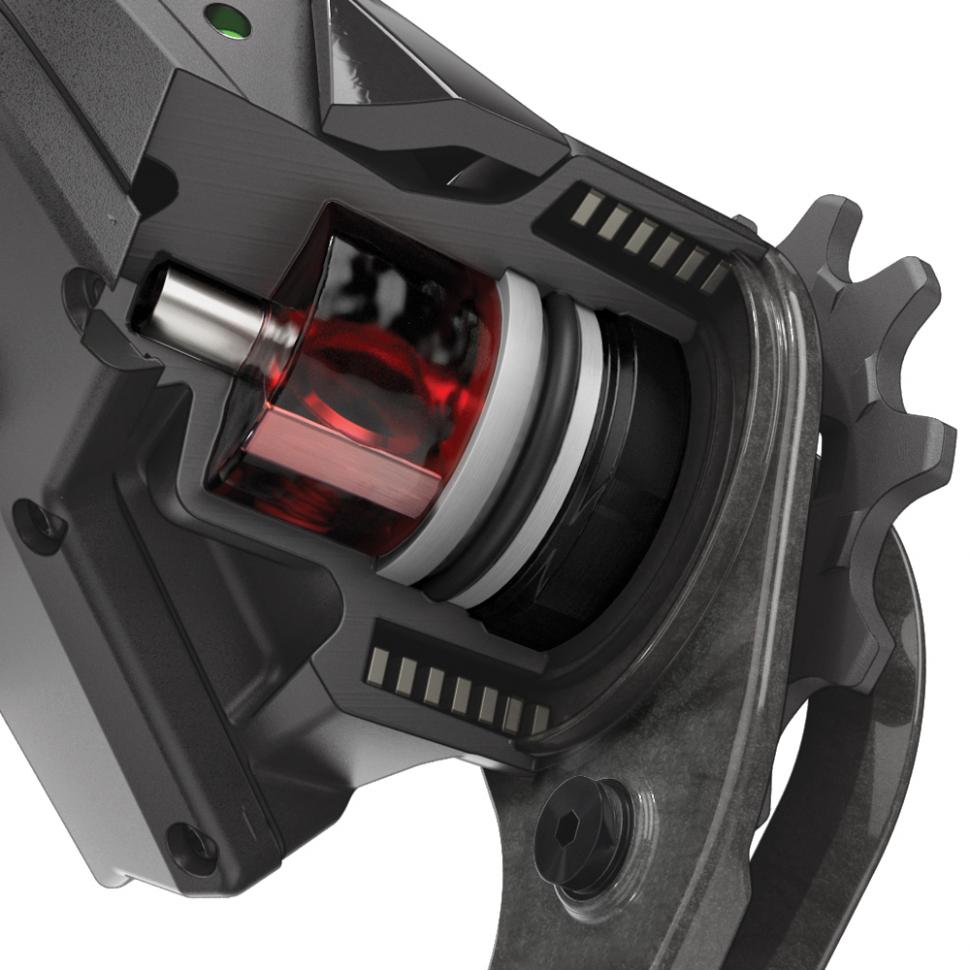
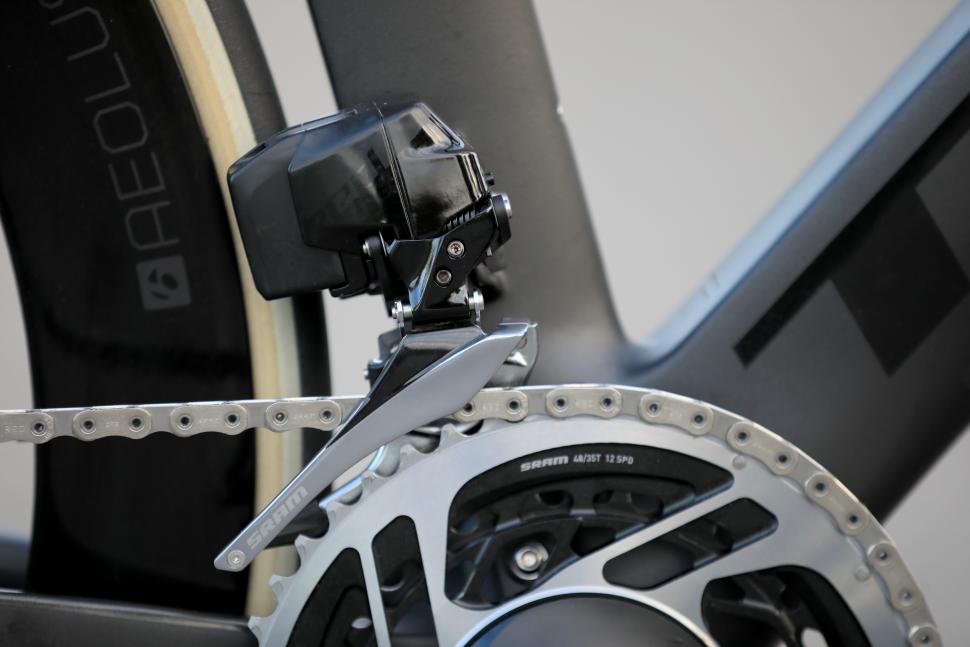
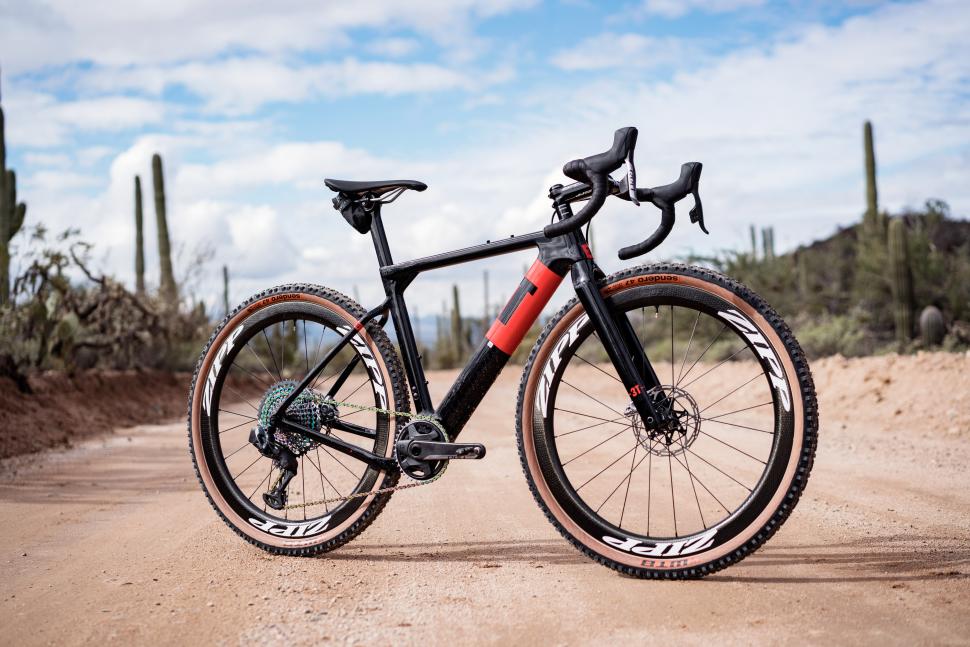
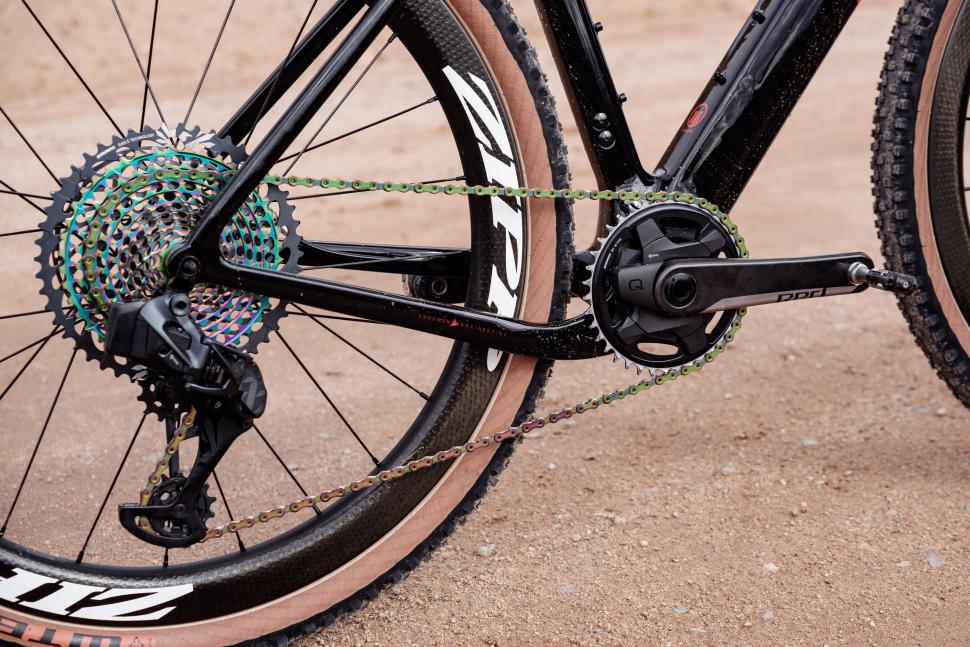
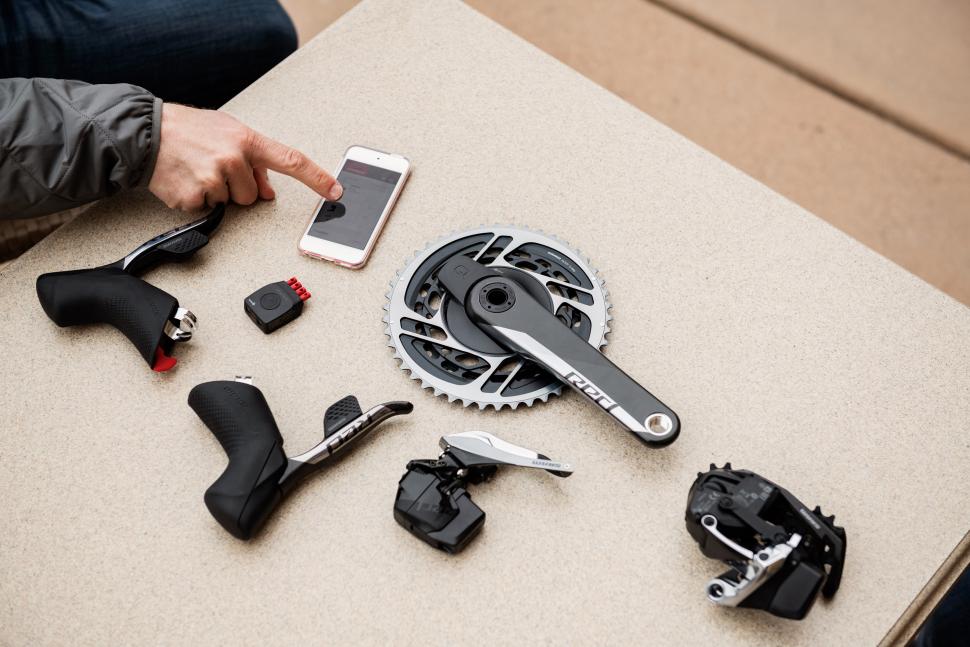

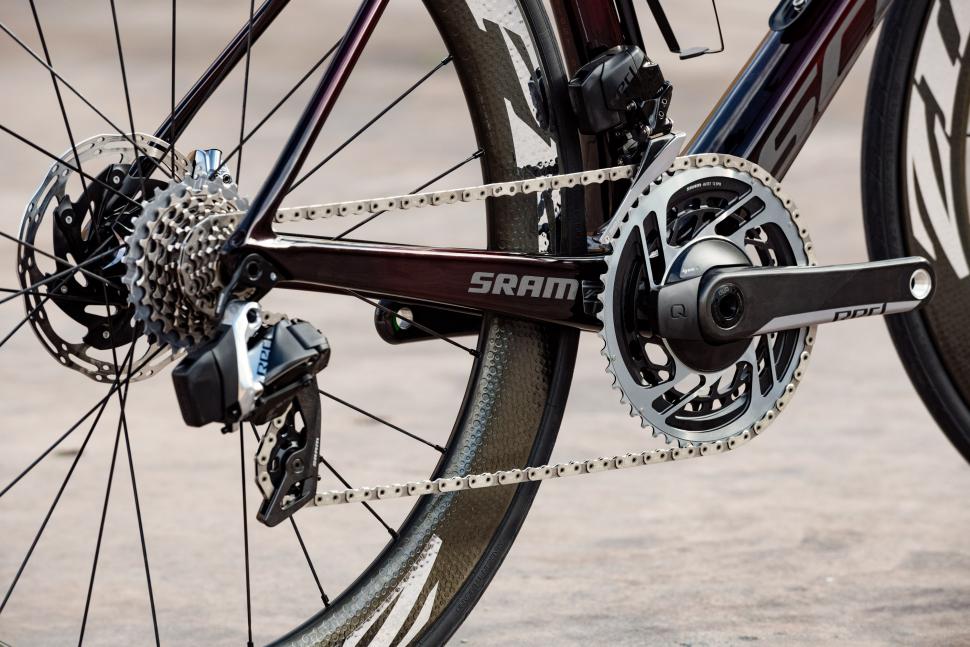
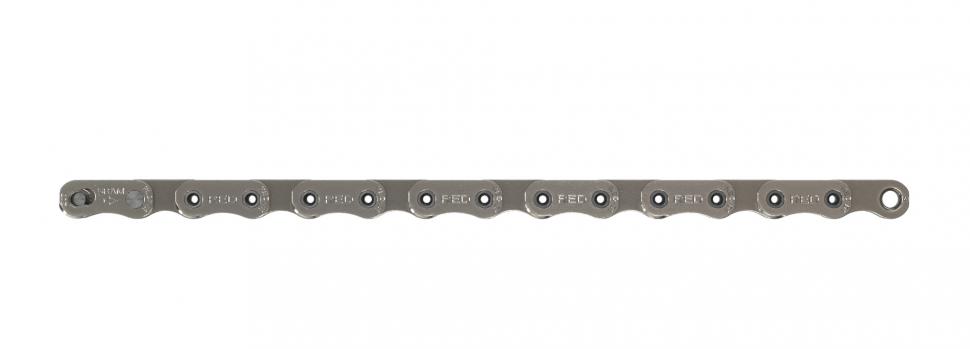
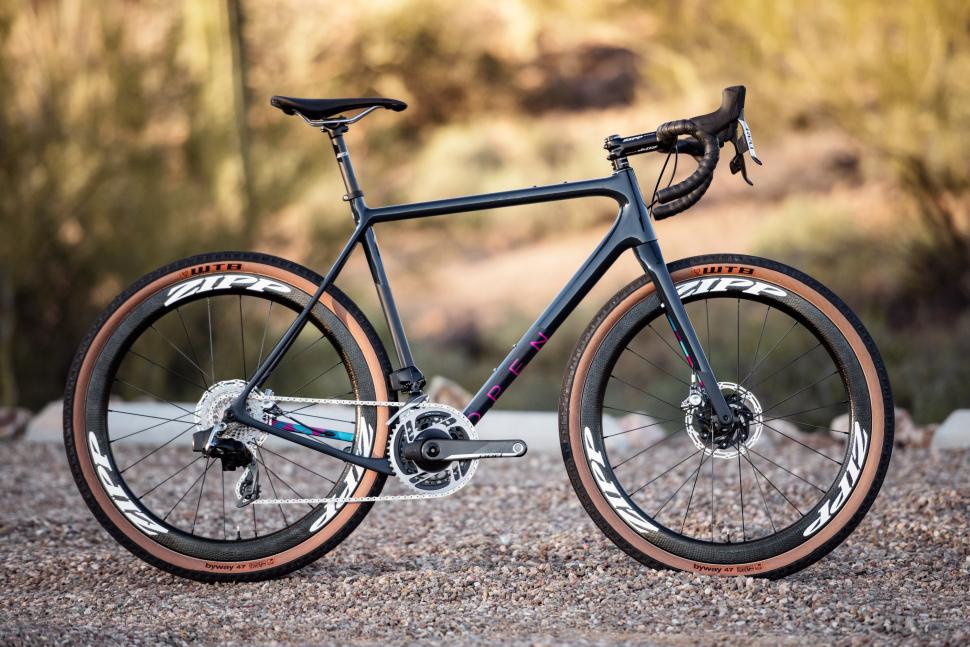
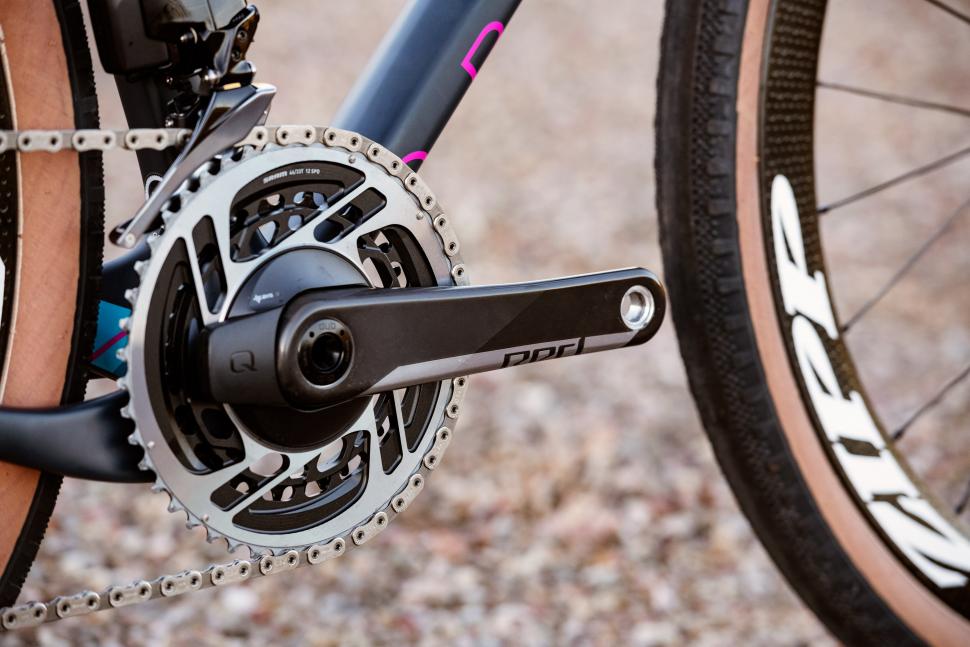
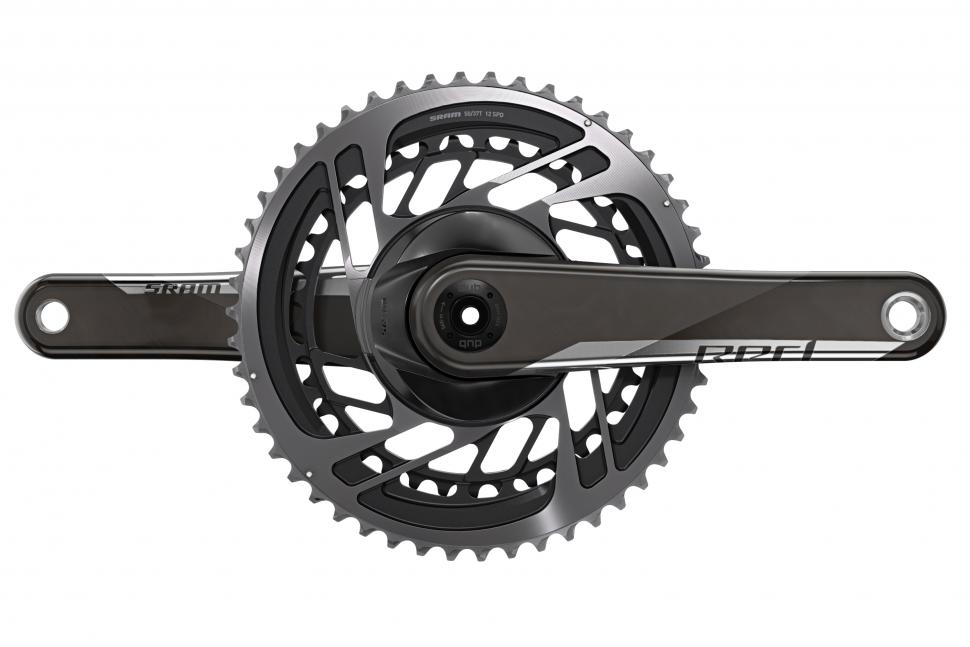
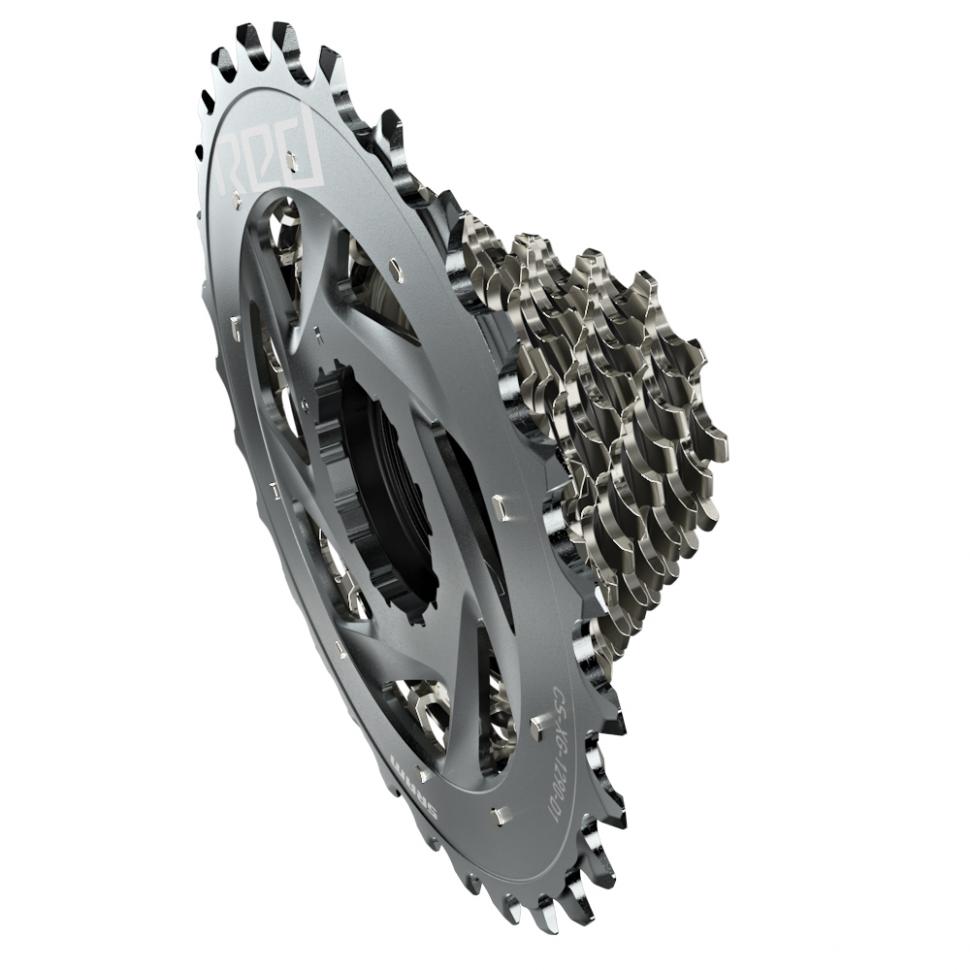

Add new comment
39 comments
I’d actually really like to be able to run a larger chainring - currently use 52/36 with an 11-28. If I could move to a 53/54 and perhaps step up from a 36 to a 38 using a 12 speed rear 11-30 that would probably suit me perfectly.
If you're spinning out a 52/11 (which I find hard to believe outside of a race or steep dh) when why don't you just swap to a 53/39 chainset?
I race - once cadence gets much over 115 it’s hard to maintain the force required to keep power up. However in itself that’s not the only reason - riding in the center of the chainring is more efficient - we all know that it’s the reason time trial it’s use 54/55/56 chainrings on flatter courses. 55 - 16 is going to be much more effficient that 53 - 12 for example.
I could swap to a 53/39 but I’d like to be able to have one set of gears for all occasions, not having to swap for conditions or where I’m riding. Something like a 54/38 with an 11-30 12speed cassette Woodford probably cover everything for me. I can comfortably get up alpine climbs with my current 36 - 28 so the 38 - 30 should give me the easier gear I need and the 54 - 11 would really help when sprinting plus should mean I’m one or two gears up the cassette most of the time gaining efficiency in the process..
Is there going to be a software update for series one eTap, to do the compensation and continuous stuff?
There's been no talk of any firmware updates to bring new features over to gen1 eTap I'm afraid
1. This. Smaller overall sprockets means a 1T jump is a bigger percentage. These are bigger jumps than on a larger cassette.
2. Smaller cogs wear faster. And at those prices. I'll stick with my old 11 speed Super Record and pocket the change
Interestingly, I've just seen a post on Rotors new 13 speed hydraulic groupset..
2x and 1x .. but I think the 1x would be more interesting for people.. https://rotorbike.com/1x13-the-only-one/
They have a 50 x 10/39 chainset which gives.. in fact I'm reading it and getting a bit confused.. I'll leave it to the experts to dissect.
We had a first look at the Rotor groupset last year. https://road.cc/content/tech-news/244867-video-first-look-rotor-1x13-all...
Some exciting aspects of it, but it needs to become available first!
So, we have:
- no backwards compatibility
- a powermeter that needs replacing with the chainrings (although SRAM will recycle the old one)
- a new cassette/chainring standard
- a new axle diameter which will result in yet another BB size
- a new chain tool requirement for the radical chain
- a new freehub standard
All that for an extra gear? I'm out.
I'd be intrigued to see what ratios the SRAM partnered pro teams will be running though.
The XDR driver has been around for years. It'll fit most current wheels no problem
There are bottom brackets to suit pretty much every frame on the market, the idea behind DUB was to simplify around a single axle diameter
But if I don't have an XDR freehub then it'll mean a new one, no? Seeing as the new cassette is XDR only. Am I right in thinkiong that the Shimano/SRAM freehub compatibility of old has been lost?
If the idea was to simplify around one single axle diameter than something like a 30mm would have been selected, don't you feel? I really can't see what benefit 28.99mm brings? Other than perhaps a weight reduction but I can't imagine it's much.
Yep. Bike websites all over the place are really downplaying the fact that for most of us it would be a right pain in the backside just to have a bike compatible for this groupset.
Then again I suppose that if you can afford this groupset you can also afford a new bike to have it fitted on.
I'm a hardcore Shimano fan, but I still rue the day they introduced the Dyna-Sys MTB groupsets that spelled the end of cross compatibility between road and off-road components.
Big applause to SRAM for bringing this convergence through ASX - it makes so much sense right now where riding drop bar bikes off-road is gaining popularity, and the genres are still pretty fluid.
Shrinking all the cogs is pretty nifty, but it's the cross-compatibility of road and MTB that is the real stroke of genius here.
I have to applaud SRAM for doing something different here. However as this new groupset stands, I can't really get my head around it.
It's 200g heavier than DA, more expensive than DA (although that's a weird one as an RRP isn't what they sell for in reality...)
The fact you can't change the big ring from a crank, perhaps isn't such a big deal I guess.. but it's odd to think that the whole lot would have to be replaced if there ever was an issue.
Those shifters look 'large' to me.. I have The newer mechanical Ultegra hydraulic shifters and they are really too large for my liking, these look even bigger! The SRAM shifters are 102g heavier than Ultegra Di2 8070 shifters.. and 146grams heavier than Dura Ace 9170 shifters.
However subjective, I do like the look of it (apart from the shifters), I really like the sleek look of that £65 chain with it's one flat side.
For me, I'd want the 2x 48/35-10x28 group - smaller gaps between gears and a slight increase in a lower gear from the standard 36x28. However saying that Shimano's latest dura ace groupset allows for a 11-30 rear cassette on a short cage..
However as a 1x groupset, it could be great, and maybe for TT'ers out there, the new ratios could be a big help.
Hydraulic brake shifters are still FUGLY...
I'm not particularly vain, but I could never bring myself to buy a bike with this groupset on for that very reason. Fugly is being polite.
Agree. I would also like to see an all black version of the groupset. I don't like the silver bits.
^^ I've replaced a big ring. Easy to damage a big ring in a crash.
Also.. just seen.... £65 for a chain !!
£325 for a rear cassette.. sheeeeet, that's £100 over Dura Ace RRP pricing!
Sarcasm, right?
That rear mech on the one x 50 set up looks mighty vulnerable!
I spend about 2 minutes a year max in my 50/11 and would quite happily drop that gear, if I could get a single 40 chain ring and a 10-40 12 speed cassette I would get all my gearing needs in a simpler, lighter, more aero and cheaper 1x package. Unfortunately this seems to fall between the two systems they've provided.
Totally. You are too far ahead of where we are now. I agree with you, but i also think to provide what you are talking about, and do it well, you would need actually a 14 or 15spd cassette.
I found I was hardly ever in 50/11 as well. What I did was change to a 12/25 cassette (2013-vintage Shimano 10 speed). Lovely close ratios which also encourage you to flip the front mech often and if I find a hill that I have to stand in the pedals on (happens fairly often, I ride in the hills around the Rhein valley), then I know I have to get a bit fitter and have a target to aim for.
This. I'd happily give that gear up for closer ratios at the other end. My ideal is probably a 13-32 (yes, I'd consider getting rid of the 12 too) going like 13, 14, 15, 17, 19, 21, 23, 25, 27, 29, 32. If I go to 12 speed I guess I could have the 12 cog back, especially with a sub-compact chainset.
I'd love to be able to spin up the slopes without large changes in cadence (or speed) and then coast down the other side. I'm guessing that there's a lot of non-racers out there who would benefit from more realistic gear choices.
Having to replace your power meter every time your chain rings wear out is just nuts.
What! That can't be right surely?
> When I say the power meter is built into the chainring, I mean it really is built in. You can’t separate the two parts. And yes, that means if/when the chainring wears out, you need to replace the ring and power meter.
I can't think of a time I've ever replaced a big ring.
Love the innovation. Difference is good.
And hopefully it means we'll see a bunch of used eTap 1st gen trickling down to eBay
Probably explains why there were a few sub-£1k mech/shifter sets in the January sales.
Also what are the 1x chainring options specifically for cyclocross, i.e where I still want to run a road cassette (prb the 10-33) and road mech with something like a 36t ring. It seems at present there isnt anything offered equivalent to the current 11-36 cassette with (usually) a 40t ring.
There's the choice of 36-46t variants with spider-based power, the 48 and 50t variants have fully integrated power. There's talk of a 52t for road racing
Pages